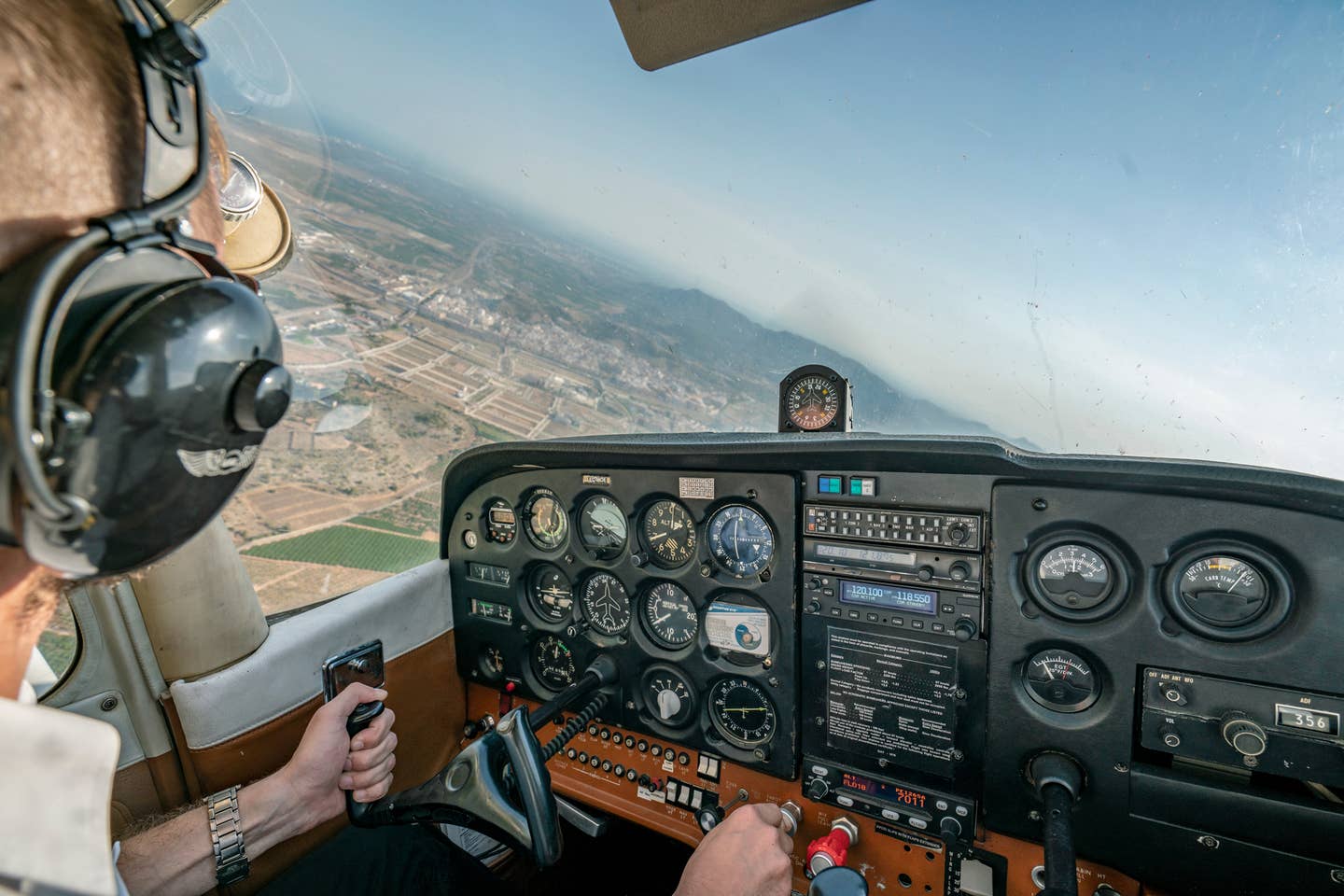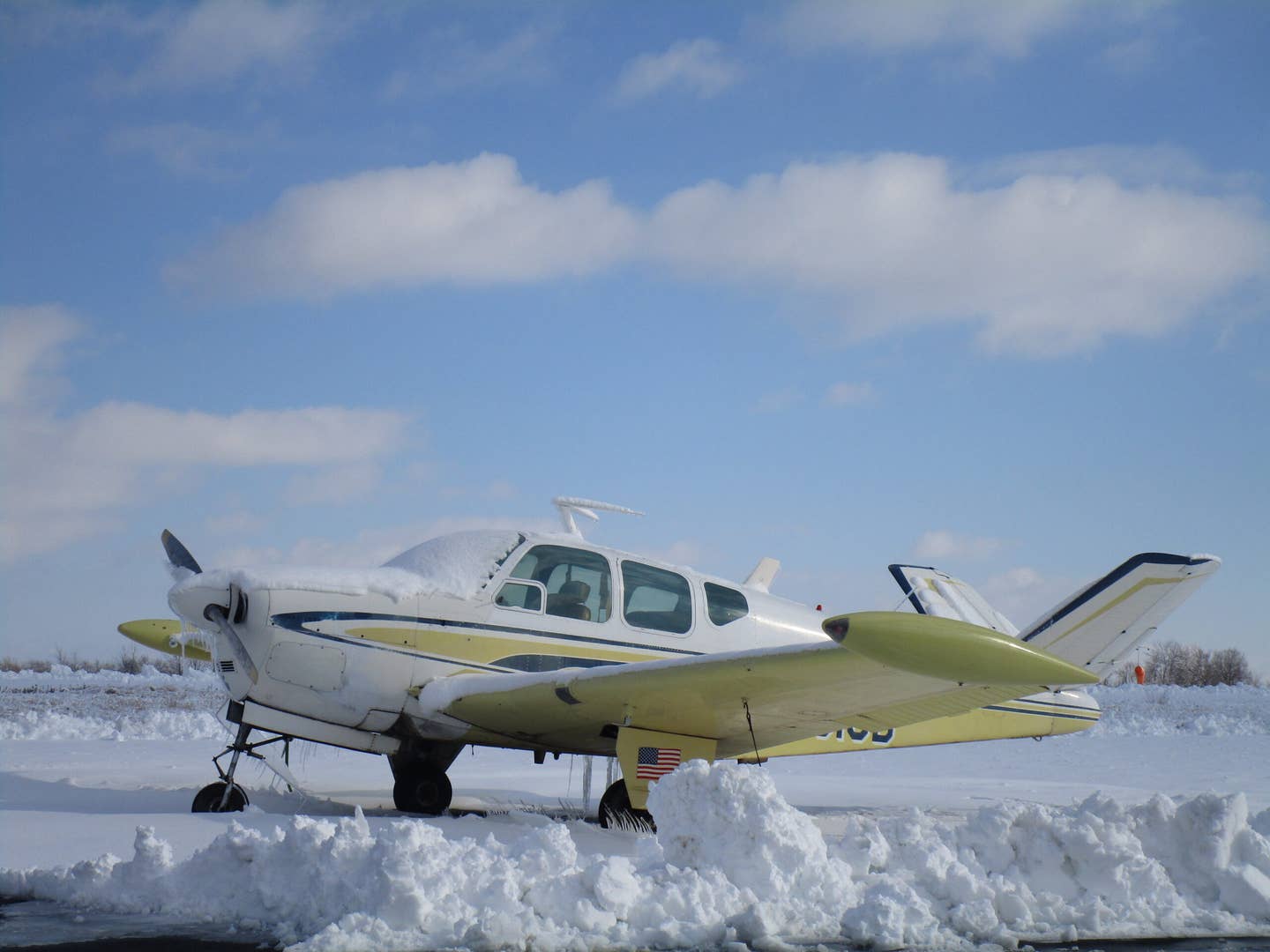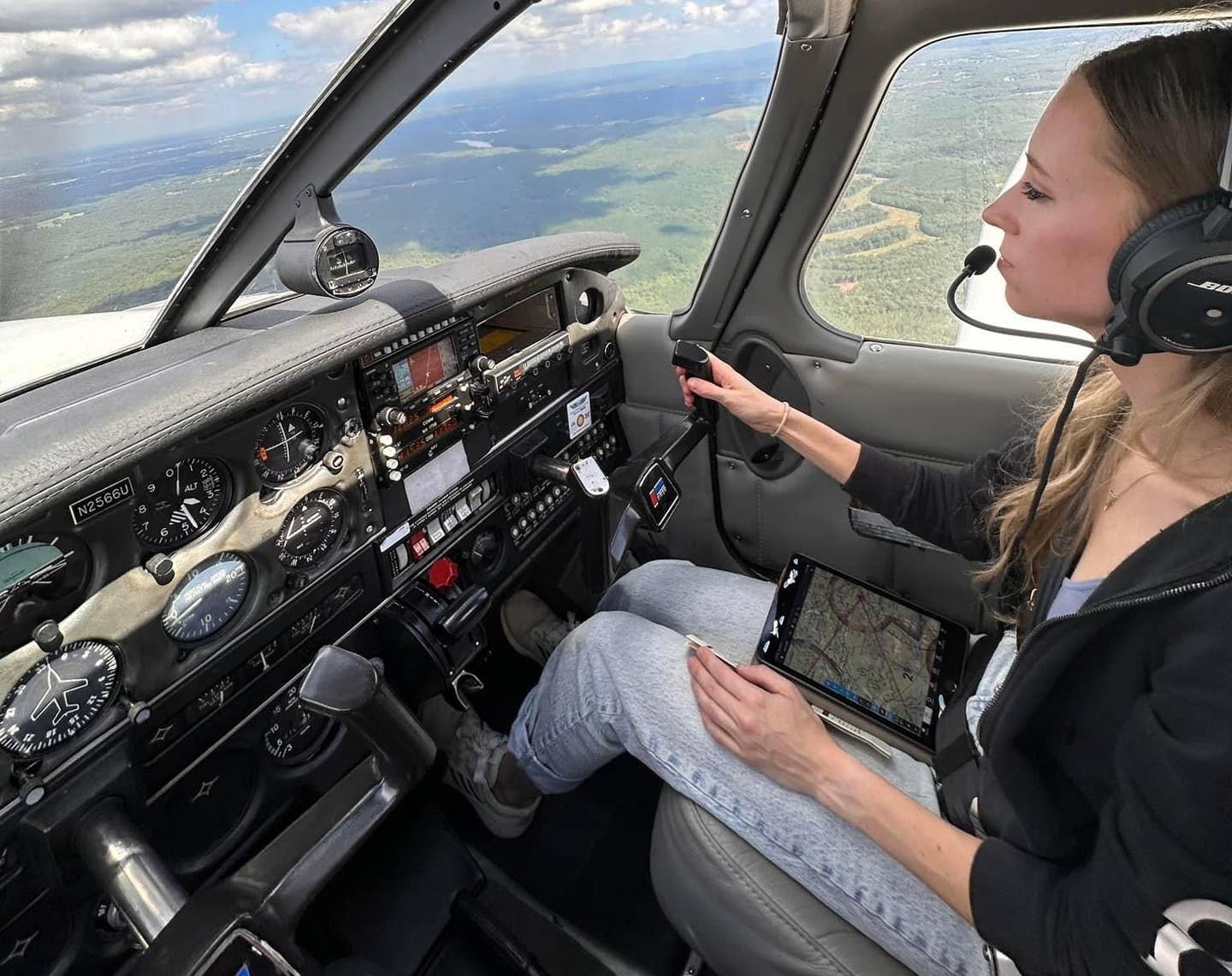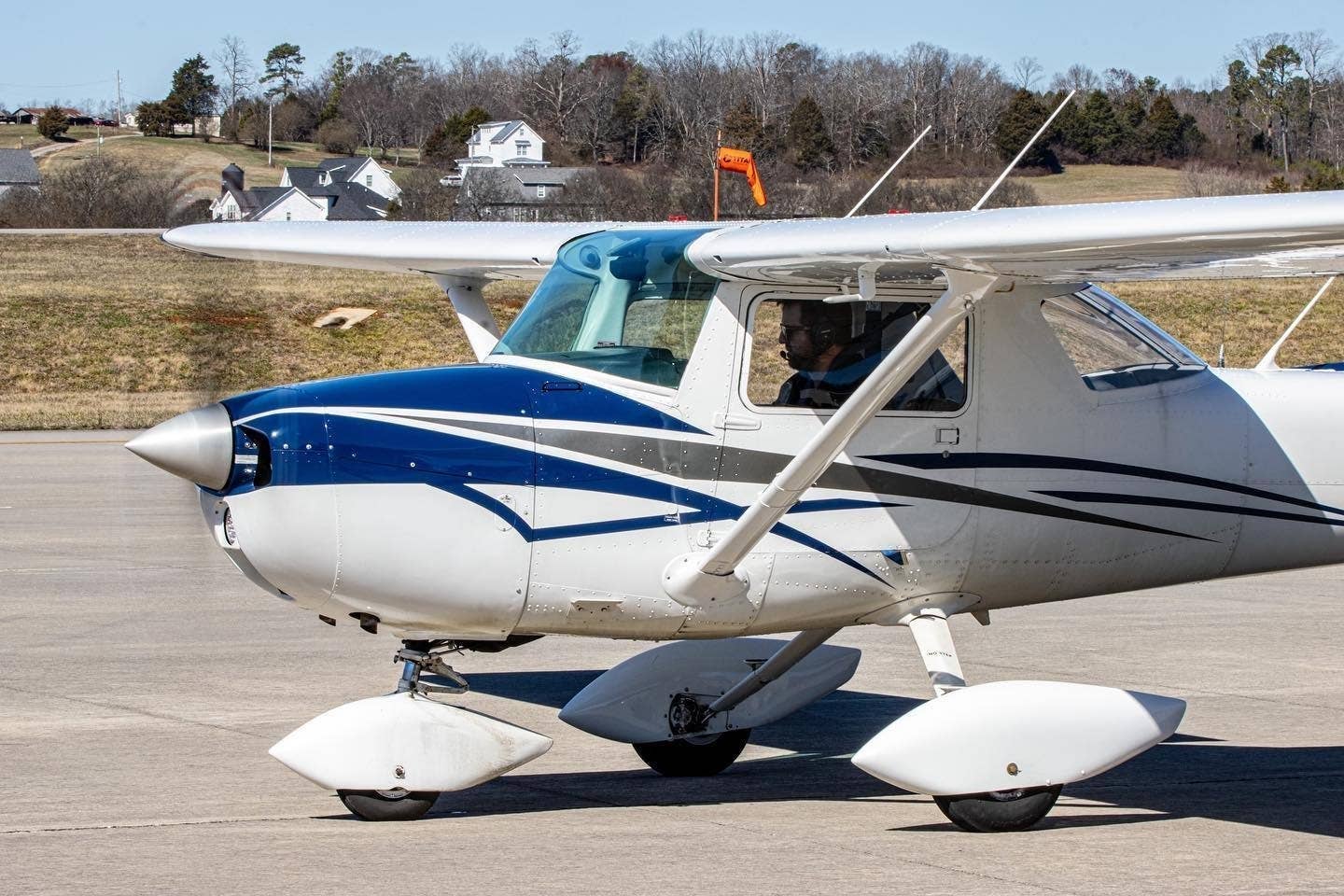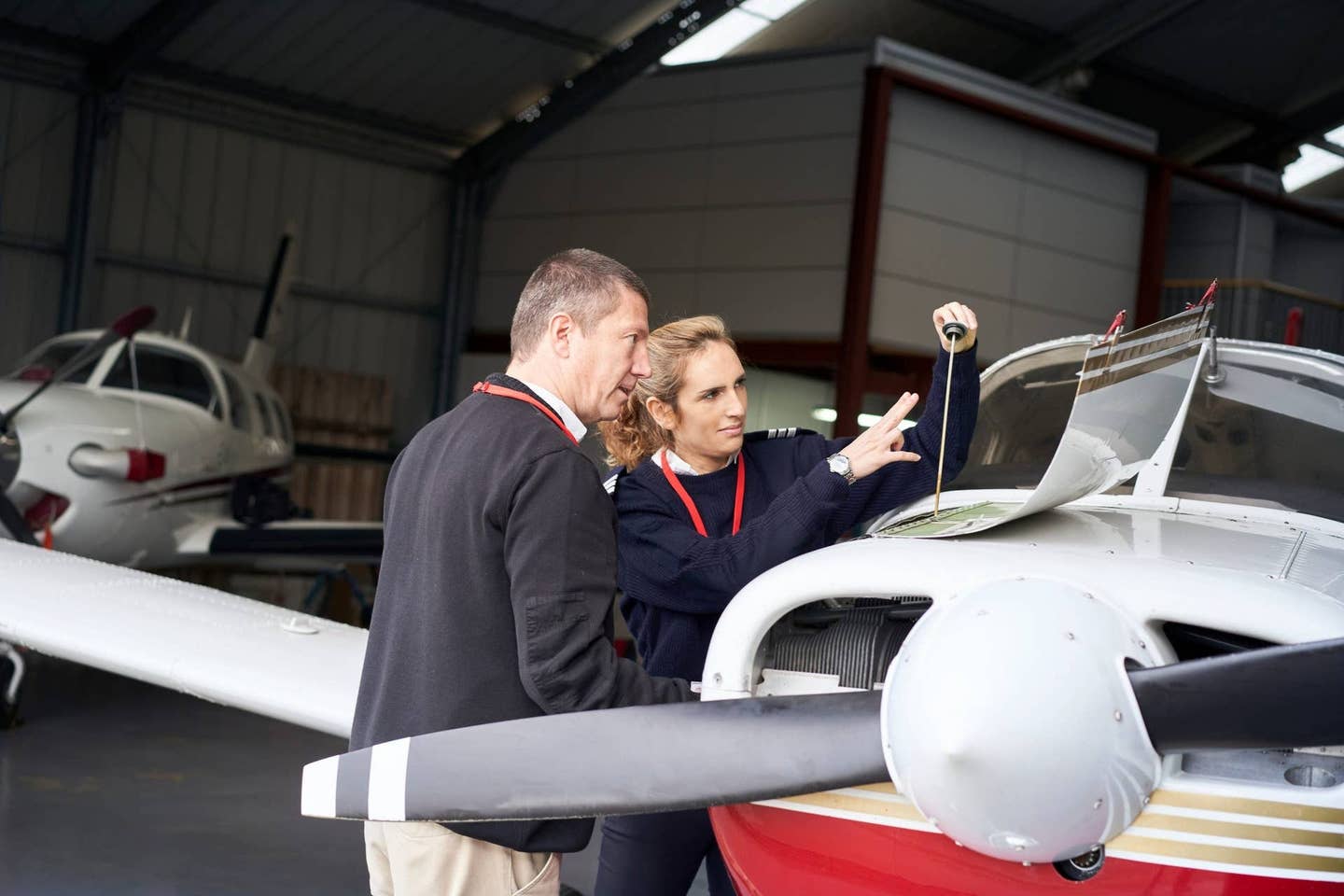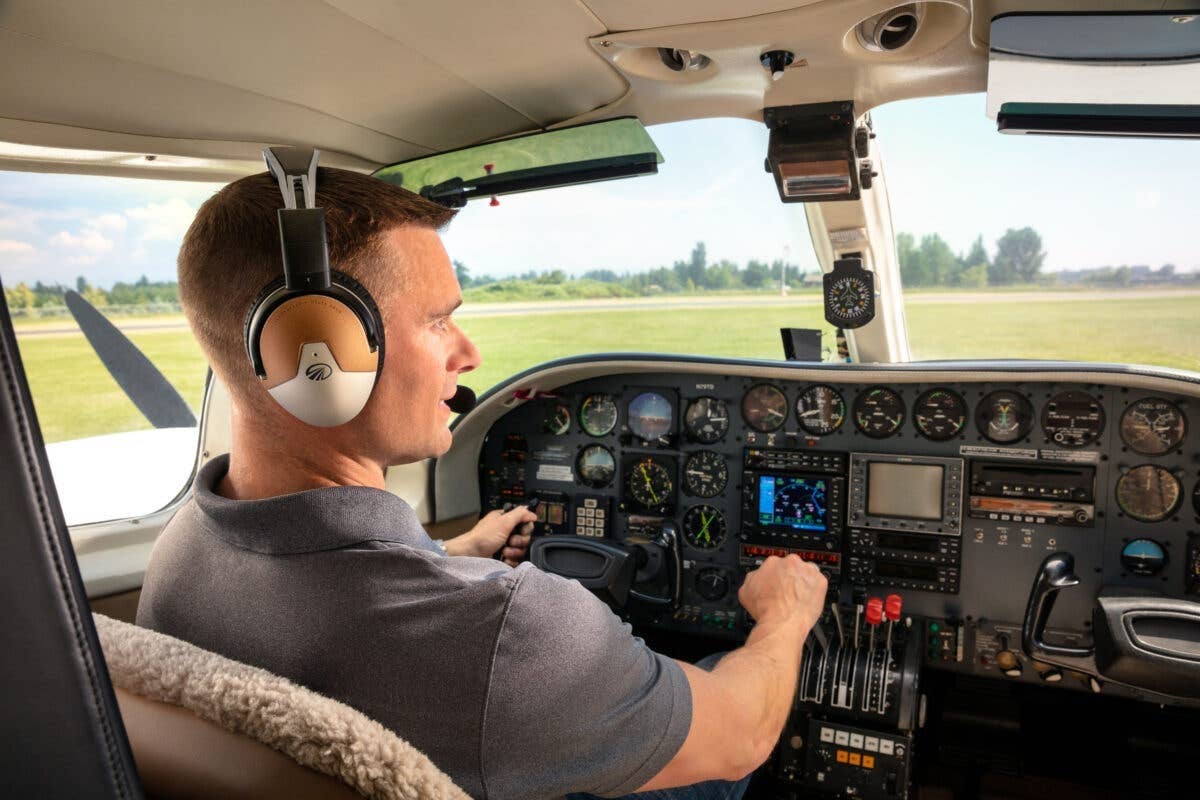 |
On a spring morning several years ago, I was doing touch-and-goes in my Extra, flying the rust off after a long winter, an annual and an engine overhaul. Air show season was around the corner, and I was enjoying the smooth, crisp air. In the groove, I greased on one after another, the wheels kissing the runway on each touchdown. I started to feel a little smug, thinking,"Man, I'm good! I've really mastered this airplane," but of course, that's when it happened. Instead of a smooth touchdown, I bounced a wheel landing. This hurt my ego. I knew how good I was, so I pushed the stick forward to nail it, and the wheels stuck so hard it felt like I had sprung the gear. On the "go," I felt a subtle power loss, but thought I must be imagining it. I dialed the prop up a notch or two and decided it was time to land.
On the ground, as was my routine, I jumped out of the airplane, walked into the hangar and called for fuel. While they were on their way, I picked up my special fuel cap key and a screwdriver to open the oil door. I heard the truck coming, so I turned around, and that's when I saw it---each of the tips of my composite MT propeller blades was a mighty mess of splintered wood. I guess I really did stick that landing.
Frantically, I waved off the gas truck ---I'll get fuel next time! I pushed the airplane into the hangar, closed the bifold door, sat down and put my head in my hands. I knew what my engine builder, Barrett Precision Aircraft, would say---"Send it in." Even if the crankshaft wasn't bent out of limits by the prop strike, we put such stresses on our aerobatic engines that we can't take any chances.
It was a bummer on so many levels. However, it was also an expensive learning experience that I probably needed. Prop strikes and other incidents are what keep us from making bigger mistakes, because they remind us how quickly things can go awry, and that we're never "that good." The incident forced me to ponder who was driving the bus that day, me or my ego?
The definition of ego is "self." We tend to think of ego as negative, like people with "big egos" or "egos that are out of control," but we all have an ego, it's our partner in life. We need to understand, control and nurture it in positive ways. Ego makes us passionate and ambitious, but if we let it go too far, we can become obnoxious, even dangerous.
A personality with a well-integrated ego is healthy, mature and "wholesome." But the ego is a sneaky little devil, delusional and inflated, and can give us the rationale to do almost anything for the illusion of reward. So, it's not always easy to know who's in control---"me or my ego." Anyone who has been around aviation knows how quickly, usually around the 500- to 1,000-hour total time mark, we start thinking, "Man, I'm good!," or, "I can nail that landing," or, "I can handle those crosswinds." To make things worse, we start comparing ourselves to others and think, "So and so flew through Tehachapi Pass in that wind; I should be able to do it." Sometimes, it can be tough to discern whether you're pushing yourself to get better and gain experience, which is absolutely necessary, or whether you're doing something to feed your ego.
Air show pilots are no more egotistical than the average Joe, they just happen to be performers. I fly in front of millions of people every year, but I think it's interesting to note that when I'm out practicing and see just one person on the ground watching me, I fly a little better and a little harder. I think it's the performer in me and not ego, but I do think about it.
Performers are under a lot of pressure. Sometimes, it comes from the air show organizers and producers. When the weather goes sour, they still need to get something in the air. We put pressure on ourselves, too, because we want to fly. The crowd has expectations---it might be raining, but there they are, sitting under their umbrellas, wrapped in plastic ponchos. Do I want to fly for them? You bet! If I can only take off, blow some smoke and do a couple of rolls, I will. I know the FARs and my own limitations, and as much as I want to perform, I'll only push things so far. But, I need to be aware of how much my ego plays a part in my decision making.
We're not all performers, but we're all influenced by others---peer pressure. A few years ago, a new "act" was introduced at air shows called CASPA. It was an attempt to bring competition into air shows and increase spectator excitement and participation. I'm generally against competition events at air shows because I feel air shows are a variety show, vaudeville, and high-light the differences rather than the similarities of the pilots and airplanes. However, I participated, and since it was a competition, I found myself pushing harder, flying lower and doing things I wouldn't ordinarily do in my solo routine.
While nothing catastrophic happened at CASPA, flying against---rather than with---other performers made me realize how thin the line is between staying true to your own standards or pushing things too far when ego is involved. I have to remind myself that the same ego that drives me to win awards is also telling me to push harder even if I violate my own standards while doing it. Watching a great performer makes me want to show them up. There's danger and risk in almost anything we do, and peer pressure might be the most seductive trap of all because it can make us do things we wouldn't ordinarily do. You know what's really ironic about peer pressure? Our peers aren't necessarily people we admire the most or even want to emulate, but we're influenced by them, anyway. Is this a function of ego?
My personal experience makes me wonder how much ego plays a part in pilot error that accounts for an overwhelming and indubitable percentage of general aviation accidents. What part does ego play when we fly into known icing in a non-ice-certified airplane (or is that just stupidity)? What about not getting training for currency and to improve our skills? I've heard people say they didn't want an instructor to fly with them because they didn't want them to see how rusty they are. That just doesn't make sense.
Does ego cloud our judgment and make us do stupid things? I think it probably does. Flying isn't inherently about competing against yourself or against anyone else, even though we sometimes have to push our comfort zone in order to gain experience. The key to success, whether performing or flying a cross-country, is to understand what part ego plays in our decision making, and to never forget the golden rule: always leave yourself an out.
We need a healthy dose of ego. It gives us pride in ourselves and in our accomplishments. It makes us want to achieve great things, such as getting a pilot's license. It gives us an edge, helps us prove our worth, make us want to be better, look good, stay in shape, be more productive. But if we recognize we have an ego, understanding it is the key to keeping it in control. There's a great line in the movie Chasing Mavericks: "...the ones who push the limits, discover the limits sometimes push back." Like the symbol of Libra---the scales---the care and feeding of our ego is an exercise in weight and balance.
Let's face it, when we're flying or learning to fly, we're already creating magic, so there's nothing left to prove. The best things in life, like flying, shouldn't be about ego, anyway.
I know my ego is tied into my flying, more than in any other area of my life, because it's part of my identity and what I'm most proud of. I think I'm a sensible, cautious, professional pilot. Most pilots I know are. But, in the back of my mind, I always have to check to see who's driving the bus---me or my ego---so I don't do anything dumb (again)! I know I've said it before, but there's just not enough room in the cockpit for both me and my ego.
There are old pilots and there are bold pilots, but there are no old, bold pilots. The saying isn't necessarily about being afraid, weak or reticent. It's about ego. It's about having the smarts to know when ego is taking over. Boldness is ego, either pushing us toward a greater glory or into a box canyon, and before you go there, you need to know the difference. Next time you get in your airplane, think about who's driving this bus---you or your ego.

Subscribe to Our Newsletter
Get the latest Plane & Pilot Magazine stories delivered directly to your inbox

